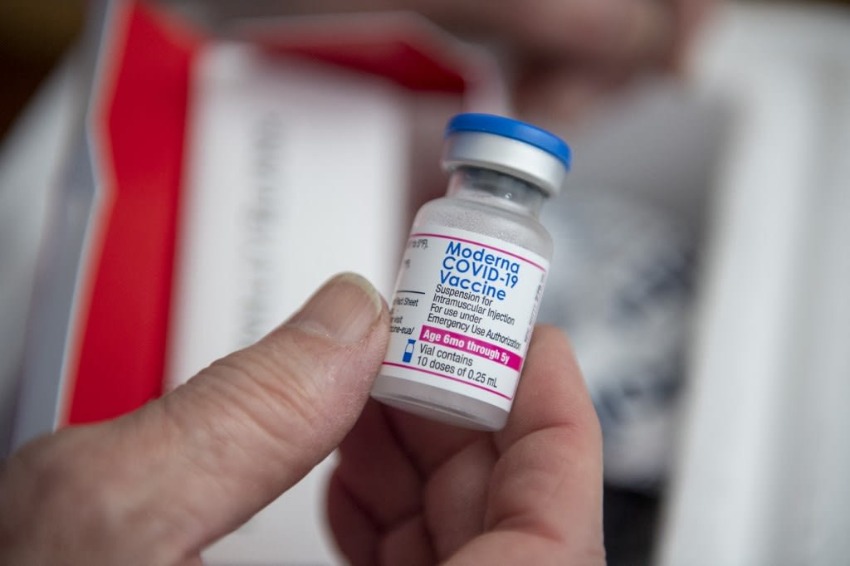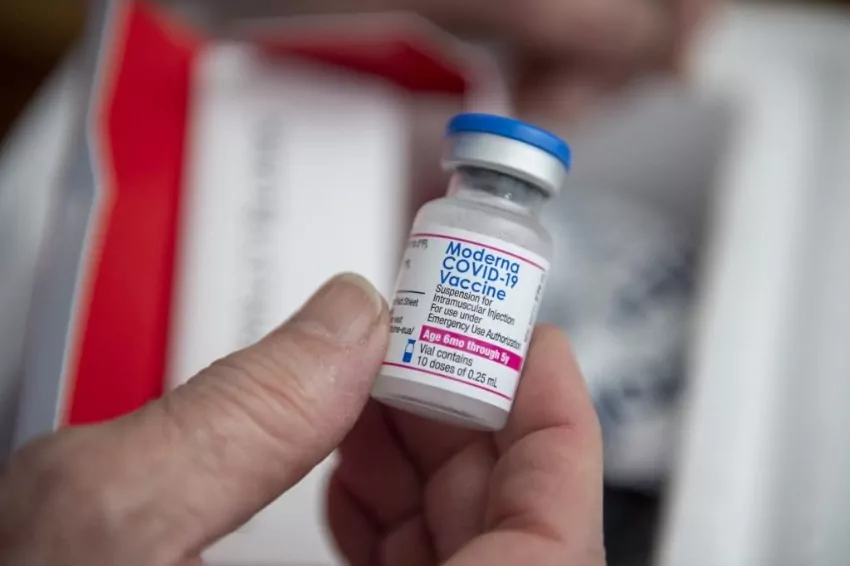

(c) Today
Pfizer and its German partner BioNTech are being sued by Moderna for allegedly infringing on Moderna’s patent while working on the first COVID-19 vaccine to be approved for use in the United States. The lawsuit alleges that Pfizer and BioNTech copied technology that Moderna had developed years before the pandemic.
According to a news release issued by Moderna on Friday, the action, which seeks monetary damages of an unspecified amount, was filed on Friday in the United States District Court in Massachusetts and in the Regional Court of Dusseldorf in Germany (Aug 26).
“We are filing these lawsuits to protect the innovative mRNA technology platform that we pioneered, invested billions of dollars in creating, and patented during the decade prior to the COVID-19 pandemic,” Chief Executive Stephane Bancel of Moderna said in the statement. “We are filing these lawsuits to protect the innovative mRNA technology platform that we pioneered, invested billions of dollars in creating, and patented.”
Two of the first groups to create a vaccine for a new coronavirus were Moderna Inc., working alone, and the partnership of Pfizer Inc. and BioNTech SE, working together.
Moderna, a company with its headquarters in Cambridge, Massachusetts, had been an inventor in the messenger RNA (mRNA) vaccine technology that permitted the extraordinary speed in producing the COVID-19 vaccine. The company had been in business for only a decade.
The licensing procedure, which had previously taken years, was finished in a matter of months, partly because of a breakthrough in mRNA vaccines. These vaccines teach human cells how to manufacture a protein that will provoke an immune response, and they have significantly shortened the approval process.
When the German company BioNTech collaborated with the American pharmaceutical powerhouse Pfizer, it had already been working in this field.
Pfizer/BioNTech was the first company to receive permission from the US Food and Drug Administration to use the COVID-19 vaccine for an emergency purpose in December 2020. Moderna received permission one week later.
Pfizer and BioNTech, according to allegations made by Moderna, stole mRNA technology that Moderna had patented between 2010 and 2016, well before COVID-19 emerged in 2019 and exploded into global consciousness in early 2020. Moderna’s allegations are based on the fact that Pfizer and BioNTech did not have permission to do so.
At the beginning of the pandemic, Moderna said that it will not enforce its COVID-19 patents in order to assist others in the development of their own vaccines, particularly for nations with low and intermediate incomes. In contrast, Moderna stated in March that it anticipated corporations such as Pfizer and BioNTech would respect the company’s intellectual property rights. It stated that it would not pursue damages for any behavior that occurred prior to March 8.
When new technologies are in their infancy, it is not unusual for there to be patent disputes.
Pfizer and BioNTech are already facing various lawsuits from other firms who claim that the vaccine developed by the partnership infringes on their patents. These companies claim that the vaccine was developed by the partnership. Pfizer and BioNTech have both stated that they intend to fiercely defend their patents.
For example, in Germany in July, CureVac, which is based in Germany, also launched a complaint against BioNTech. In response, BioNTech issued a statement insisting that its work was completely unique.
Additionally, a lawsuit for patent infringement has been filed against Moderna in the United States, and the company is engaged in an ongoing dispute with the National Institutes of Health of the United States over the rights to mRNA technology.
Pfizer and BioNTech are accused of stealing two different forms of intellectual property, as stated by Moderna in a statement released on Friday.
The first of these included an mRNA structure, the development of which Moderna claims its researchers started in 2010, and which they were the first to validate in human trials in 2015.
“Pfizer and BioNTech put forward a total of four potential vaccine candidates for clinical testing. Among these possibilities were some alternatives that would have avoided the novel approach taken by Moderna. Pfizer and BioNTech, on the other hand, came to the conclusion that they should move through with a vaccination that contains the exact same mRNA chemical change as their vaccine,” Moderna claimed in its statement.
The coding of a full-length spike protein is the subject of the second instance of alleged intellectual property infringement. According to Moderna, its scientists generated this protein while working on a vaccination for the coronavirus that causes Middle East Respiratory Syndrome (MERS) (MERS).
Although the MERS vaccine was never released to the public, the creation of it was essential in helping Moderna speed up the release of its COVID-19 vaccine.
Cricket fans, rejoice! The Olympic Council of Asia (OCA) has confirmed that cricket will be part of the 2026 Asian…
With economic growth fueled by families, Asia's stronghold will soon be on Bloomberg's list of Asia's richest families in the…
Malaysia has reached a historic milestone by ranking number one in the global Open Data Inventory (Odin) 2024/25, thanks to…
For Nogizaka46 fans, this May is going to offer a great opportunity to watch as their 6th Generation Members are…
The dual relationship between Malaysia and the Myanmar junta and National Unity Government (NUG) establishes a vital shift in how…
BLACKPINK's Lisa Declines to Perform at Miss Universe 2025 BLACKPINK's Lisa, who recently stole the limelight at the 2025 Coachella…
This website uses cookies.
Read More